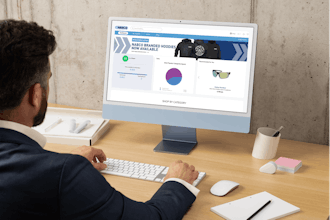Mobile solutions have a huge potential to drastically increase the efficiency of field workers and save big money for companies in a range of industries. However, the implementation of mobile solutions is filled with pitfalls. Industry veteran Mikael Nilebacke, Managing Director of Erisma Technologies, gives his best advice on how to succeed.
Mobile solutions, i.e. software for PDAs and smartphones, have an enormous potential to improve efficiency and save big money for companies that today rely on time-consuming paper-based solutions. Industries such as fire safety, security, electrical, telecom, data, energy, power, construction, logistics, and heating/ventilation/cooling, have much to gain by adapting modern mobile business solutions for their work forces.
However, the transition from paper-based/manual/traditional solutions to advanced mobile solutions is filled with pitfalls. Many things can go wrong that can leave you with an inadequate, or in the worst case, non-functioning solution. Mobile business solution expert Mikael Nilebacke, CEO of Erisma Technologies with more than 15 years of industry experience, shares his top ten advice on how to succeed with the implementation of mobile solutions:
1. Conduct a needs analysis
Why do you need a mobile system? Do you want to be more effective? Do the clients demand more access to information? The answers will help you identify the specific functions you require in your mobile solutions. Prioritize functions that are really useful. Decide who will use the system and how much the system may cost. If you skip this step, there is a risk that the supplier’s sale team gains control over the process and create needs that do not really exist.
2. Engage and involve your employees in the process
Try to engage and involve your staff in the process of implementing a mobile system as early as possible. Lead your employees through the entire procurement process and utilize the competence, experience and knowledge they possess. Engaging the staff from an early stage will make them motivated to implement the system/solution and showcase the benefits of a mobile solution.
3. Carefully choose a system and a supplier
Usually, the important choice will be between a standard system and a customized system. I strongly recommend using standardized systems. The development of mobile technology is evolving very rapidly, which makes the standardized system more future-proof and flexible than the customized system.
Choose a supplier that is of "the right size": not small enough for you to risk ending up with a system that will disappear or cease to be updated, and not too big for the supplier to lose interest in you when you are no longer a key customer.
4. Contact all the references that you can find
When contacting a reference that your supplier has given you — always try to read between the lines. Learn from how they use the system and think about ways your organization can benefit from this knowledge. Try to find your own references, at least three of them, and do not settle for just one. This will minimize the risk of spending time and money on the wrong system.
5. Keep the option to cancel the order
Not all suppliers have sufficient knowledge and experience to deliver and implement their systems correctly. Try to negotiate an evaluation period with the option to cancel the order should you discover that the system is not right for you and your organization. You must be prepared to let go of the system if it does not deliver and solve the problems and/or fulfill the list of demands you created during your earlier needs analysis.
6. Listen to the supplier
Once a supplier is chosen — stick to your choice. Let them know what you want to achieve and be all ears to any good advice and feedback that the supplier can give you. Do not try to control the supplier too much — if you are unsure of the plan, ask them to explain.
7. One step at a time
Avoid trying to do everything at once. Running several projects simultaneously will increase the complexity and can lead to devastating consequences. Instead, create a plan with a chain of smaller activities that you can each finish before starting the next one.
8. Do not cut back on the wrong things
Do not try to cut back on consultation or education, and be generous when setting a deadline. Be prepared to adjust the deadline along the way if you feel that your needs and demands have changed — this is normal. Always try to assign the most suitable person to a specific task. It could be you, an employee, or one of the supplier’s consultants. The question is not whether you are able to do something yourself — but rather if you should.
9. Realize that a mobile system won’t solve all your problems
A mobile system will, in most cases, help you to gain more control over your organization and save you heaps of time and money. But remember: A mobile system is not the solution to all of your problems. Have a reasonable level of ambition and expectation, and accept that you will have to work with other problems.
10. Plan for the future
Invest in a solution that can be developed along with the development of your company. The world is changing and we cannot predict what the future holds — you might need to change some things within your company, and mobile solutions technologies are developing fast. This makes it crucial to choose the right system for your company. A good advice is to avoid customized systems as much and as long as possible.
Mikael Nilebacke is Managing Director and co-founder of Erisma Technologies, a leading mobile business solutions company based in Scandinavia. The core business of Erisma is Mobigo, a mobile solution for mobile field service management, time tracking, log books, check lists and inspections etc. that makes reporting and other tasks more efficient. Mikael Nilebacke has more than 15 years of experience in the field of mobile solutions. For more information please visit www.mobigo.se.






















